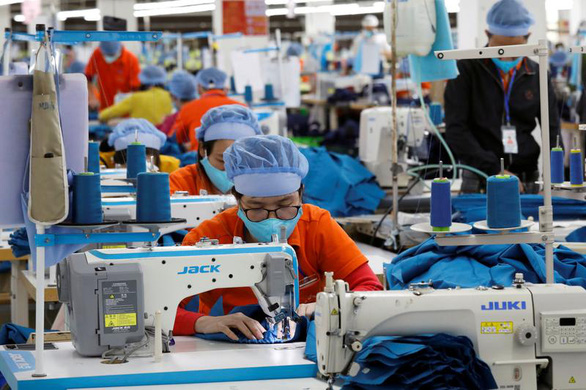The World Bank (WB) has approved two development policy operations (DPOs) totaling US$321.5 million for Vietnam’s COVID-19 recovery efforts and urban management improvement in Ho Chi Minh City.
The two DPOs are meant to assist the central government and Vietnam’s largest economic hub, Ho Chi Minh City, in their efforts to proceed with an economic recovery that is inclusive, digitally transformative, and sustainable, the WB said on Tuesday.
Given the impacts of the COVID-19 pandemic, Vietnam needs to accelerate its reforms if it wants to become a high-income economy by 2045, said Carolyn Turk, WB country director for Vietnam.
“The country must not only manage the immediate effects associated with the pandemic, but also build the foundations for a green recovery in the longer-term,” the country director emphasized.
The first DPO, worth $221.5 million, focuses on policy actions that will make the recovery more inclusive, including support for e-governance, renewable energy, mobile money, and childcare.
E-government development activities will help accelerate a recovery process based on digital transformation so that public services can be provided more effectively and comprehensively to Vietnamese people and businesses, the WB said.
Policies to encourage the development of renewable energy will assist Vietnam in prioritizing solar energy projects as greener and less carbon-emitting alternatives to coal.
Supporting the adoption of mobile payments aims to increase access to financial services for unbanked households, which are still a majority in Vietnam.
By providing more access to affordable and quality childcare, this operation will help to address one of the greatest barriers to women’s workplace equality in industrial parks, said the WB.
Meanwhile, the second DPO, valued at $100 million, will support Ho Chi Minh City in promoting the use of integrated and transparent spatial information for urban management.
This operation is designed to strengthen public asset and debt management, as well as improve the delivery of priority municipal services – a basic element for effectively governing a modern city.
The bank expects that reforms aimed at simplifying business registration procedures and enhancing access to planning information will help improve the city’s business environment, thereby attracting more private investors, increasing labor productivity, and generating jobs.
By strengthening the city's public asset and debt management efficiency, this operation is expected to help improve fiscal efficiency and generate additional revenue in the coming years.
In the long term, residents will benefit from higher-quality urban services thanks to the city’s reforms to promote competitiveness and transparency in the transport and real estate sectors.
This operation will also help the city relieve its vulnerabilities to climate change through increasing transparency in climate-informed land zoning, expanding drainage coverage, and the expected switch from private transport to less carbon-emitting public transport.
It will promote gender equality by encouraging women and girls to use public transport by enhancing connectivity and personal safety measures.
The funding for the national DPO comes from the International Development Association while the financing for the Ho Chi Minh City DPO is sourced from the International Bank for Reconstruction and Development.
Like us on Facebook or follow us on Twitter to get the latest news about Vietnam!

















































